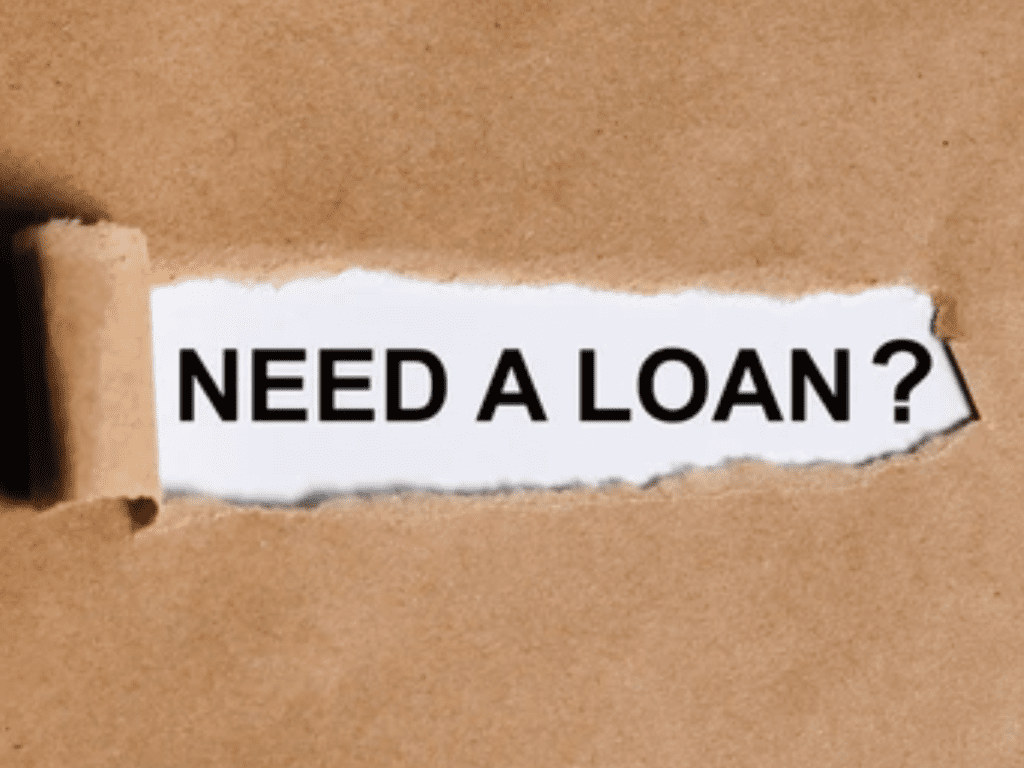Introduction
Unexpected expenses are an inevitable part of life. Whether it’s an emergency medical bill, home repairs, or car maintenance, unforeseen financial challenges can disrupt your budget and create stress. While it’s always wise to have an emergency fund to cover these expenses, not everyone is prepared for the sudden financial strain that comes with unexpected costs. When savings fall short, one option that people turn to is personal loans.
A personal loan is a type of unsecured loan that can be used for a variety of reasons, including covering unplanned expenses. These loans can provide quick access to cash, often with reasonable interest rates and flexible repayment terms. In this article, we will explore how personal loans can help you manage unexpected expenses, the benefits and risks associated with them, and how to make an informed decision if you find yourself in need of financial assistance.
Understanding Personal Loans
Before diving into how personal loans can help with unexpected expenses, it’s important to understand what they are. A personal loan is an amount of money borrowed from a financial institution, such as a bank, credit union, or online lender, which you agree to pay back over a set period with interest. Unlike mortgages or car loans, personal loans are generally unsecured, meaning they don’t require collateral such as your home or car.
The amount you can borrow, the interest rate you’re offered, and the terms of repayment depend on several factors, including your credit score, income, and debt-to-income ratio. Personal loans typically have fixed interest rates, so your monthly payments will remain the same throughout the loan term. This stability can be beneficial when you need to manage your finances and plan for the future.
When to Consider Using a Personal Loan for Unexpected Expenses
There are many situations where using a personal loan might be a wise choice for covering unexpected expenses. Some of the most common scenarios include:
1. Medical Expenses
Medical emergencies can be among the most expensive and unpredictable situations. Even with insurance, there are often out-of-pocket expenses such as deductibles, co-pays, or treatments that are not covered. A personal loan can help cover these costs and allow you to pay off the balance over time, reducing the immediate financial strain.
For example, if you unexpectedly need surgery or face a large medical bill due to an accident or illness, a personal loan can provide you with the funds to cover the expenses without putting your financial well-being in jeopardy.
2. Home Repairs or Renovations
The cost of home repairs can be steep, especially when the damage is extensive. Whether it’s a leaking roof, a broken furnace, or unexpected plumbing issues, these costs can arise suddenly and require immediate attention. In many cases, home repair costs can range from a few hundred dollars to thousands, which might not be affordable out of pocket.
A personal loan can provide the necessary funds to make repairs or renovations, helping you to maintain your home and avoid further damage that could lead to even higher costs.
3. Car Repairs
If your car breaks down unexpectedly, the costs of repair can be significant. Depending on the issue, you could be looking at a hefty repair bill for fixing a transmission, replacing a major engine part, or other costly fixes. Using a personal loan to pay for these repairs can help you get back on the road faster and without needing to dip into savings or disrupt other areas of your finances.
4. Funeral Costs
In the unfortunate event of a loved one’s passing, funeral expenses can be overwhelming. The average funeral costs can range from a few thousand to tens of thousands of dollars, depending on the services chosen. Personal loans can help families manage these costs during an emotionally challenging time, allowing them to handle the financial burden without taking on more debt or experiencing financial hardship.
5. Unexpected Travel Expenses
Sometimes, unexpected travel expenses arise, such as the need to visit a sick family member, attend a funeral, or take care of an urgent personal matter. Travel costs, including airfare, hotel stays, and other related expenses, can quickly add up, and using a personal loan might be a good option if you don’t have the available cash on hand to cover the costs.
6. Debt Consolidation
If you find yourself facing multiple unexpected expenses and taking on different types of debt (credit cards, medical bills, personal loans, etc.), it can be difficult to manage everything. In this case, using a personal loan for debt consolidation could make sense. By consolidating your debts, you combine all outstanding balances into one loan with a fixed interest rate, which can simplify repayment and potentially save money on interest.
The Benefits of Using a Personal Loan for Unexpected Expenses
When managed properly, personal loans offer several benefits that make them a good solution for tackling unexpected expenses:
1. Quick Access to Cash
One of the main advantages of personal loans is the quick access to cash. In many cases, personal loans can be approved and disbursed within a few days or even a day, which is essential when dealing with time-sensitive expenses such as medical bills or urgent car repairs. The fast approval process makes personal loans an ideal option when you need money quickly.
2. Fixed Interest Rates
Unlike credit cards, which can carry high and variable interest rates, personal loans typically come with fixed interest rates. This means that your monthly payments will remain consistent over the life of the loan, making it easier to budget and plan your finances. Knowing exactly how much you’ll owe each month can bring peace of mind when dealing with unexpected expenses.
3. No Collateral Required
Since personal loans are generally unsecured, you don’t need to provide any collateral to secure the loan. This is beneficial if you don’t want to risk your home or other assets. The absence of collateral also means that the application process is usually quicker and simpler than for secured loans.
4. Flexible Loan Amounts and Terms
Personal loans can be tailored to your specific needs. Whether you require a small loan to cover a few hundred dollars or a larger loan to cover several thousand, personal loans can provide the flexibility to borrow the exact amount you need. Additionally, personal loan terms can range from a few months to several years, allowing you to select a repayment period that suits your financial situation.
5. Improved Credit Score Potential
If you have existing debts or struggle to keep up with payments, a personal loan can help you improve your credit score. By consolidating your debts or using the loan to pay off credit cards, you reduce your credit utilization ratio and may see improvements in your score over time. Additionally, making consistent payments on a personal loan can also contribute positively to your credit history.
The Risks of Using a Personal Loan for Unexpected Expenses
While personal loans have many benefits, they are not without risks. Before deciding to take out a personal loan, it’s important to consider the potential downsides.
1. Accumulating Debt
Taking out a personal loan means committing to monthly payments for the loan term, which could be anywhere from a year to several years. While this may seem manageable initially, it’s important to ensure that you will be able to consistently make payments without stretching your finances too thin. If you’re already struggling with other debts, taking on additional loan payments can lead to further financial strain.
2. High Interest Rates for Those with Poor Credit
Your credit score plays a significant role in the interest rate you receive for a personal loan. If you have poor credit, you may be offered higher interest rates, which could make the loan more expensive in the long run. In some cases, high interest rates may negate the financial benefits of taking out the loan.
3. Late Fees and Penalties
If you miss a payment or make a late payment, you may incur additional fees or penalties. This can make your loan more expensive and affect your credit score negatively. It’s essential to be sure that you can commit to the loan’s repayment terms before borrowing.
4. Overborrowing
It can be tempting to borrow more than you need, especially if the lender offers a higher loan amount. However, borrowing more than necessary can lead to unnecessary debt. Be realistic about how much money you actually need and avoid taking on more debt than you can comfortably repay.
How to Decide If a Personal Loan is Right for You
If you’re considering using a personal loan to cover unexpected expenses, it’s important to evaluate your financial situation and carefully assess whether it’s the best option for you. Here are some key factors to consider:
1. Your Current Financial Situation
Take a close look at your income, existing debts, and overall financial health. Can you afford to take on a personal loan and make the necessary monthly payments? If you’re already struggling with high levels of debt, taking out another loan might not be the best solution.
2. The Urgency of the Expense
If the unexpected expense is urgent and cannot be delayed, a personal loan can provide the funds you need quickly. However, if the expense can be postponed or adjusted, consider other options, such as reducing costs or tapping into an emergency fund.
3. Your Credit Score
Your credit score will impact your ability to secure a personal loan and the interest rate you’re offered. If your credit score is good or excellent, you’re likely to get a loan with favorable terms. If your credit score is poor, you may still qualify for a loan, but it could come with higher interest rates.
4. The Total Cost of the Loan
Make sure to calculate the total cost of the loan, including interest and fees, before deciding to borrow. A loan may seem like a quick solution, but if the total repayment cost is too high, it could end up being more expensive than other options.
Conclusion
Personal loans can be a valuable financial tool when faced with unexpected expenses, offering quick access to funds and flexible repayment terms. However, it’s important to weigh the benefits against the risks and ensure that you can manage the loan responsibly. By understanding the terms, assessing your financial situation, and borrowing only what you need, personal loans can help you navigate financial challenges without derailing your long-term financial goals.

